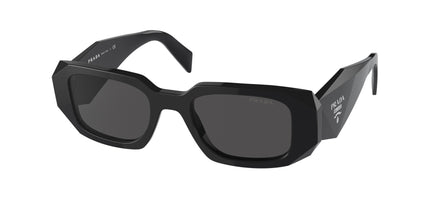The Eight Business Trends You Should Know for 2023

It's funny how technology is evolving. In the past, we would have to get out of bed and manually "do" things like turning the lights on or off or changing the channel on the TV set. Heck, even opening the door to our home wasn't automatic – you had to grab a key fob and press a button.
Business trends are constantly evolving as well. In fact, according to Fast Company, "the digital economy is going from a world where devices generate data to one in which devices are generated by data."
There's no longer a need to reinvent the wheel here. To help you keep up to speed with what's hot for business trends for 2023, below are eight of the biggest themes that will impact business owners and marketers over the next few years.
● Lifestyle-based Segmentation:
Customer behavior will be radically transformed with a shift toward a more personalized lifestyle-based segmentation. This will help companies speak to their customers' worldviews more effectively through products, services, communications, and shopping experiences. For example – if you are selling eye care devices, you can market them according to various lifestyles such as – busy bee, party animal, family man, etc. Based on the lifestyle you choose for the customer, your marketing message would vary to match their current lifestyle.
● Omnichannel:
With online & mobile commerce continuing to grow, the biggest brands will start offering seamless shopping across various channels. This will increase the prevalence of omnichannel retailing and make it easier for consumers to shop regardless of when, where, or what device they choose to purchase
● Multi-device:
The importance of multi-device marketing is increasing dramatically as more consumers demand access to all their favorite brands while they're on the go. In fact, in 2022, half of all smartphone users will be shopping on mobile devices. In addition, retail companies that want their brand to be truly accessible will be investing in connected home devices, like Amazon Echo and Google Home, to provide shoppers with an even greater brand experience.
● Augmented Reality and Virtual Reality:
Virtual reality is a growing trend that involves the use of headsets such as Oculus Rift and HTC Vive. This technology is expected to be used in e-commerce by allowing customers to walk around their custom-made furniture before purchasing them.
● Personalized customer service will increase customer satisfaction levels.
With customer service expectations higher than ever before, businesses have to look for new ways to deliver personalized experiences for each customer. Customers want to feel like they're being given special treatment, and companies that can deliver on this need are sure to see loyal shoppers
● Conducting business will be about creating your path
For example – eye care business: Yes, there are big brands and corporate chains that have been practicing this type of eye care, but there are smaller, independent companies that provide the same services but with a personal touch. Smaller companies give their patients a more personalized experience, and they can provide a unique service. Eyecare is one of the most important parts of your healthcare, but larger companies cannot give you all the attention that you need when it comes down to the eye exam portion. Larger corporations may have the funds, and the staff for you to get the best eye care possible, but not every patient wants to be treated like another number.
● The sharing economy will become big business.
Augmented reality involves overlaying computer-generated images on a live camera feed. An example of this is the popular game Pokemon Go where players chase virtual monsters overlaid on live camera views.
● A Data-Driven Future: The Rise of Real-Time Analytics
Today, new technologies are helping businesses make faster, more informed business decisions. Thanks to the real-time dashboards enabled by these technologies—such as analytics in the cloud—a key question for any business leader is no longer "What data?" but rather, "How will we incorporate that data into our decision-making?"
Over the next 5 years, real-time dashboards will enable businesses to act on new insights promptly and offer a competitive advantage in an increasingly data-driven business environment.















 Back to Blog Page
Back to Blog Page











